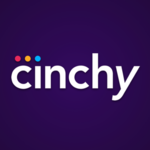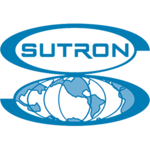Description

Adverity

SegmentStream
Comprehensive Overview: Adverity vs SegmentStream
Adverity and SegmentStream are both data platforms that serve the marketing and analytics needs of businesses. They offer distinct functionalities and cater to somewhat different aspects of data management and analytics, though there is some overlap in their capabilities.
Adverity
a) Primary Functions and Target Markets
- Primary Functions: Adverity is a data analytics platform specializing in marketing analytics and data integration. It enables businesses to connect disparate data sources, automate data workflows, and gain insights from their marketing data. Key functionalities include data integration, data visualization, data governance, and advanced analytics.
- Target Markets: Adverity primarily targets marketers, data analysts, and business intelligence professionals across industries that heavily rely on data-driven insights. Their solutions are ideal for large corporations and organizations looking to consolidate marketing data from multiple sources into a single platform.
b) Market Share and User Base
- Market Share and User Base: Adverity has seen consistent growth, particularly as businesses prioritize data-driven decision-making. However, specific market share and user base numbers are not publicly detailed, as the company is privately held. Its presence is notable in Europe and expanding globally, with a strong focus on serving enterprise-level clients.
c) Key Differentiating Factors
- Integration Capability: Adverity is known for its extensive data integration capabilities, supporting a wide array of data connectors.
- Automated Data Workflows: The platform offers robust automation features that streamline data preparation, reducing manual workload.
- Customizable Dashboards: Offers highly customizable data visualization and dashboarding, allowing users to tailor reports to specific business needs.
SegmentStream
a) Primary Functions and Target Markets
- Primary Functions: SegmentStream is a conversion modeling platform that uses machine learning to optimize marketing performance across digital channels. It focuses on attribution, customer journey analysis, and conversion optimization by predicting and influencing purchase behavior.
- Target Markets: SegmentStream targets digital marketing teams, e-commerce businesses, and agencies. It is particularly useful for businesses aiming to enhance their attribution modeling and optimize conversion paths in online sales environments.
b) Market Share and User Base
- Market Share and User Base: SegmentStream is a newer entrant compared to established platforms, yet has gained traction due to its innovative approach to attribution and conversion optimization. It appeals to a niche audience looking for advanced attribution solutions, so while its market share may be smaller, it has a solid footing among companies looking for cutting-edge technology in marketing analytics.
c) Key Differentiating Factors
- Conversion Modeling: Unique in its focus on employing predictive analytics to enhance attribution accuracy and conversion rates.
- Machine Learning: Utilizes sophisticated machine learning techniques to adapt and optimize customer interactions in real-time.
- Attribution Approach: Offers a novel approach to multi-touch attribution, addressing common challenges in digital marketing with more precise modeling.
Comparative Analysis
- Functionality Scope: Adverity is more about integrating and visualizing marketing data from numerous sources, while SegmentStream focuses deeply on conversion modeling and attribution.
- Target Audience: Both systems target marketing teams but SegmentStream is more niche with its focus on e-commerce and digital marketing optimization.
- Technology and Innovation: SegmentStream's use of machine learning sets it apart in the realm of attribution and predictive analytics, whereas Adverity shines with its wide integration capabilities and comprehensive analytics toolkit.
Overall, both platforms serve to enhance marketing efforts, though they do so in different capacities. Businesses may choose between them based on their specific needs—whether that's extensive data integration and visualization (Adverity) or advanced conversion modeling and attribution (SegmentStream).
Contact Info

Year founded :
2015
+43 1 8903155
Not Available
Austria
http://www.linkedin.com/company/myadverity

Year founded :
2018
+7 495 648-83-20
Not Available
United Kingdom
http://www.linkedin.com/company/segmentstream
Feature Similarity Breakdown: Adverity, SegmentStream
Adverity and SegmentStream are both prominent tools in the realm of data analytics and marketing technology. They are designed to help businesses harness and interpret data to make informed decisions, but they each have their unique strengths and features. Here’s a breakdown of their features:
a) Core Features in Common
-
Data Integration: Both Adverity and SegmentStream offer robust data integration capabilities, allowing users to aggregate data from multiple sources for a holistic view of marketing performance.
-
Data Transformation: These platforms provide tools for transforming raw data into actionable insights. This includes capabilities for cleaning, normalizing, and organizing data from disparate sources.
-
Visualization: Both tools include data visualization features, enabling businesses to create dashboards and reports that help in understanding data trends and patterns.
-
Automation: Automation of data processing tasks is a key aspect of both platforms, which helps in reducing manual efforts and improving data accuracy.
b) User Interface Comparison
-
Adverity: Adverity is known for its intuitive and user-friendly interface, which emphasizes drag-and-drop functionalities for building data integrations and creating customizable dashboards. The platform is designed for users who may not have deep technical expertise, making it accessible to a wide range of marketing professionals.
-
SegmentStream: SegmentStream also offers an intuitive interface but is slightly more technical due to its focus on machine learning and predictive analytics. Its UI is designed to cater to marketers and data analysts who might require deeper insights into customer journeys and attribution modeling.
c) Unique Features
-
Adverity:
- Advanced Marketing Analytics: Adverity is particularly strong in providing advanced marketing analytics features. It includes sophisticated analytics that help marketers understand multi-channel campaign performance.
- Comprehensive Data Connectors: It offers one of the most extensive libraries of data connectors, meaning it's likely to support all major data sources a business might use.
- Smart Recommendations: Utilizes AI to provide smart recommendations that can guide users in optimizing their data usage for better marketing outcomes.
-
SegmentStream:
- Predictive Attribution: SegmentStream focuses heavily on attribution modeling. It uses machine learning to provide predictive attribution, forecasting future conversions and improving the efficiency of advertising spend.
- Behavioral Analytics: Offers deep behavioral analytics, utilizing machine learning to understand customer interactions across multiple touchpoints.
- Cookieless Tracking: SegmentStream has developed capabilities for cookieless tracking, making it suitable for businesses looking to navigate privacy regulations without losing analytic capabilities.
In summary, both Adverity and SegmentStream offer powerful data integration and analytics capabilities, but they cater to slightly different needs within the marketing and analytics ecosystems. Adverity is often preferred for its comprehensive data integration and user-friendly interface, while SegmentStream stands out for its predictive attribution and advanced customer journey analytics.
Features

Not Available

Not Available
Best Fit Use Cases: Adverity, SegmentStream
Adverity
a) Best Fit Use Cases:
-
Data-Driven Enterprises:
- Type of Businesses: Medium to large enterprises that rely heavily on data insights for decision-making. These businesses often have complex data ecosystems with inputs from various marketing channels, CRM systems, and other data sources.
- Projects: Adverity is ideal for projects that require extensive data integration and transformation, enabling businesses to create comprehensive data pipelines for real-time insights.
-
Marketing Agencies:
- Agencies managing multiple clients' campaigns can benefit from Adverity's ability to consolidate data from numerous sources into a single, cohesive overview. This is useful for creating detailed reports and optimizing campaign performance.
-
E-commerce Platforms:
- E-commerce businesses that manage a vast amount of data from different sales channels, marketing activities, and customer interactions can use Adverity to streamline their data analysis processes.
d) Industry Verticals and Company Sizes:
- Industry Verticals: Retail, e-commerce, telecommunications, finance, and media are some industries where Adverity provides significant value by optimizing marketing and sales strategies through data-driven insights.
- Company Sizes: Primarily suitable for medium to large businesses due to the complexity and scale of data operations typically handled by these enterprises. However, data-savvy smaller companies with robust data requirements can also benefit.
SegmentStream
b) Preferred Use Cases:
-
Digital Marketing Teams:
- Type of Businesses: Companies with a strong focus on digital marketing who need to understand multi-channel user journeys and attribution data beyond last-click models.
- Projects: Projects focused on optimizing conversion rates and customer acquisition strategies by leveraging sophisticated machine learning models to predict customer behavior.
-
Businesses with High Conversion Value:
- Companies whose online transactions involve significant decisions (e.g., B2B services, real estate platforms) can use SegmentStream to better understand the influence of various touchpoints in longer sales cycles.
-
Companies Seeking Marketing Automation:
- Businesses looking to automate their marketing data workflows and processes, to improve the efficiency and accuracy of their marketing analytics and attributions.
d) Industry Verticals and Company Sizes:
- Industry Verticals: Predominantly benefits industries like e-commerce, SaaS, gaming, and online services where user interaction data is critical for successful marketing strategies. It's especially helpful in sectors requiring advanced understanding of complex buyer journeys.
- Company Sizes: More suited to small to medium enterprises that need advanced analytical capabilities but may not have the resources to build such solutions in-house. It allows these businesses to implement sophisticated analytics and attribution models without extensive technical overhead.
Overall, while both Adverity and SegmentStream provide data integration and analytics solutions, Adverity leans more towards comprehensive data integration across broader sources, making it ideal for larger operations with extensive data strategies. In contrast, SegmentStream offers more specialized solutions tailored towards understanding and optimizing marketing attribution and digital conversion paths, appealing to businesses deeply engaged in digital and performance marketing.
Pricing

Pricing Not Available

Pricing Not Available
Metrics History
Metrics History
Comparing teamSize across companies
Conclusion & Final Verdict: Adverity vs SegmentStream
To provide a comprehensive conclusion and verdict for Adverity and SegmentStream, we need to consider various aspects such as features, usability, pricing, integration capabilities, customer support, and the specific needs of users. Here's a detailed analysis:
a) Best Overall Value
Adverity generally offers a more comprehensive data integration and analytics platform. It is particularly strong in its ability to integrate a vast array of data sources and its robust reporting and visualization features. The platform is highly scalable, making it suitable for larger organizations with complex data needs.
SegmentStream, on the other hand, is more specialized in simplifying data collection and enabling data-driven marketing through advanced analytics. It offers unique features like real-time data processing and customer journey analytics, which can be particularly valuable for marketing teams focused on precise targeting and optimization.
Conclusion: Adverity offers the best overall value for organizations looking for a robust, all-encompassing data analytics platform. It is more versatile in handling various data needs. SegmentStream, while excellent, is more specialized, so its overall value may be greater for marketing-focused organizations with specific needs around customer journey analytics.
b) Pros and Cons
Adverity:
-
Pros:
- Extensive data connectivity options and integration capabilities.
- Strong visualization and reporting tools.
- Scalable for large enterprises and versatile across industries.
-
Cons:
- Higher complexity could result in a steeper learning curve for users new to data analytics.
- Pricing may be higher, especially for smaller businesses with limited budgets.
SegmentStream:
-
Pros:
- Excellent for marketers focused on customer journey analytics and real-time data processing.
- Easier to use for those specifically in data-driven marketing roles.
- Can provide more immediate insights into customer behaviors and marketing performance.
-
Cons:
- May lack some of the broader data connectivity and visualization features that Adverity offers.
- Could be less beneficial for organizations whose needs go beyond marketing analytics.
c) Recommendations for Users
-
Consider Your Primary Needs: If your organization requires an extensive data integration solution with advanced analytics and reporting capabilities covering various business functions, Adverity is likely the better choice. However, if your primary focus is on marketing analytics and understanding customer journeys, SegmentStream could provide more immediate value.
-
Budget and Resources: Evaluate your budget and potential return on investment. Adverity may have a higher upfront cost but can be more cost-effective in the long run due to its broader capabilities. SegmentStream might be a more cost-effective option for pure marketing insights.
-
Trial and Feedback: Take advantage of any trial periods offered by these platforms to get hands-on experience. Gather feedback from the teams that will be using these tools most frequently to gauge usability and practical value.
-
Scalability and Future Needs: Consider not only your current needs but also how they might evolve. Adverity's scalability makes it optimal for growing enterprises, whereas SegmentStream’s specialization might better suit a rapidly expanding marketing function.
Users should closely examine their specific data requirements, business objectives, and future growth plans when deciding between Adverity and SegmentStream.
Add to compare
Add similar companies




